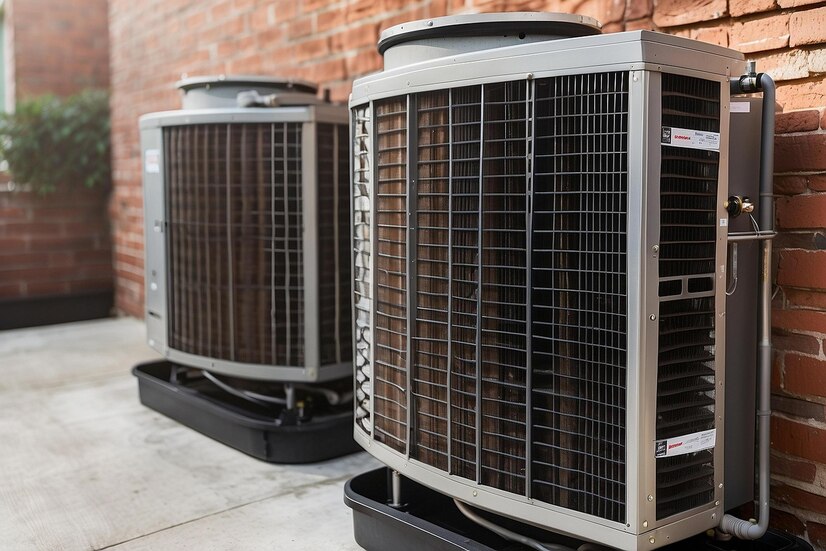When we think about clean air, our minds often gravitate toward images of pristine outdoor settings, free from pollution and toxic fumes—a far cry from the reality of our indoor living environments. However, indoor air quality plays a crucial role in our overall health and well-being, affecting our respiratory system, allergies, and the general comfort of our home. With most people spending the majority of their day inside, understanding and maintaining good indoor air quality is essential.
In this insightful article, we will delve into the importance of indoor air quality, the factors that influence it, and the impact it can have on our health. We will also discuss the role of proper HVAC system maintenance, along with other strategies to improve indoor air quality, ensuring a healthier living environment for you and your family. Finally, we will emphasize the value of partnering with an experienced HVAC contractor like NCS to maintain and optimize your home’s air quality.
Factors Affecting Indoor Air Quality
There are several factors that can influence the quality of the air inside your home. Understanding these factors can help you take necessary measures to improve your indoor air quality:
1. Pollutants
Indoor air pollutants can come from various sources, including combustion processes, household cleaners, and building materials. Pollutants such as carbon monoxide, volatile organic compounds (VOCs), and radon are hazardous and can have adverse effects on health and well-being.
2. Allergens
Dust, pet dander, and pollen are common allergens found in indoor air that can trigger allergies and asthma attacks. Proper ventilation and air filtration are crucial for reducing allergens and maintaining a healthier living environment.
3. Humidity Levels
High humidity can create a breeding ground for mold and mildew growth, leading to poor indoor air quality. On the other hand, low humidity can cause dry and irritated mucous membranes, making it essential to maintain an optimal humidity level in your home.
4. Ventilation
A well-designed ventilation system is crucial for allowing fresh outdoor air to enter your home and removing stale, contaminated indoor air. Adequate ventilation can help maintain good indoor air quality and create a healthier living environment.
Importance of HVAC System Maintenance for Better Indoor Air Quality
Proper HVAC system maintenance is a critical aspect of maintaining good indoor air quality. Here’s how regular HVAC maintenance can contribute to cleaner air and improved health:
1. Clean and Replace Air Filters
Air filters play a crucial role in removing dust, allergens, and other contaminants from the indoor air. Regular cleaning or replacing air filters can significantly improve the air quality in your home and prevent respiratory issues.
2. Duct Cleaning
Over time, your HVAC system’s ducts can accumulate dust, allergens, and other debris, leading to reduced air quality. Professional duct cleaning can help remove these contaminants and improve the efficiency of your HVAC system.
3. Check and Adjust Ventilation
Routine maintenance and inspections can help identify any ventilation issues, such as blockage or improper airflow. Fixing these issues can improve indoor air quality by allowing fresh air to circulate and removing contaminants.
4. Control Humidity Levels
An essential part of HVAC maintenance is ensuring your system effectively controls indoor humidity levels. Too much moisture in the air can lead to mold growth and other issues, while insufficient humidity can cause discomfort and respiratory irritation. Regular maintenance can help maintain optimal humidity levels, creating a more comfortable and healthier living environment.
Strategies for Improving Indoor Air Quality
In addition to proper HVAC system maintenance, there are several strategies you can implement to improve your home’s air quality:
1. Maintain a Clean Home
Regularly vacuuming, dusting, and cleaning your home can help reduce allergens and pollutants in the air. Make sure to clean carpets, upholstery, and bedding, as these areas can harbor dust and allergens.
2. Choose Low VOC Products
When selecting household products, such as paints, cleaners, and building materials, opt for ones with low VOC emissions to minimize indoor air pollution and improve air quality.
3. Install Air Purifiers
Air purifiers can help remove contaminants, allergens, and odors from indoor air, providing cleaner and healthier air for you and your family. Consider installing a whole-home air purifier or placing portable air purifiers in high-traffic areas.
4. Use a Dehumidifier
If high humidity is a concern in your home, consider using a dehumidifier to reduce excess moisture and prevent mold and mildew growth.
Working with a Skilled HVAC Contractor
When it comes to maintaining and improving your home’s indoor air quality, working with an experienced HVAC contractor is essential. Professional technicians have the knowledge and expertise to assess your HVAC system, recommend necessary repairs or maintenance, and provide valuable advice on enhancing your indoor air quality.
By partnering with a skilled and reliable HVAC contractor like NCS, you can ensure that your HVAC system effectively contributes to a healthier and more comfortable living environment.
Investing in Good Indoor Air Quality for Better Health
Understanding and maintaining good indoor air quality is crucial for a healthier home and improved well-being. By implementing effective strategies, maintaining your HVAC system, and working with a professional HVAC contractor, you can create a cleaner and more comfortable living space for you and your family. Reach out to us at NCS, your HVAC contractor in Minneapolis, today!



